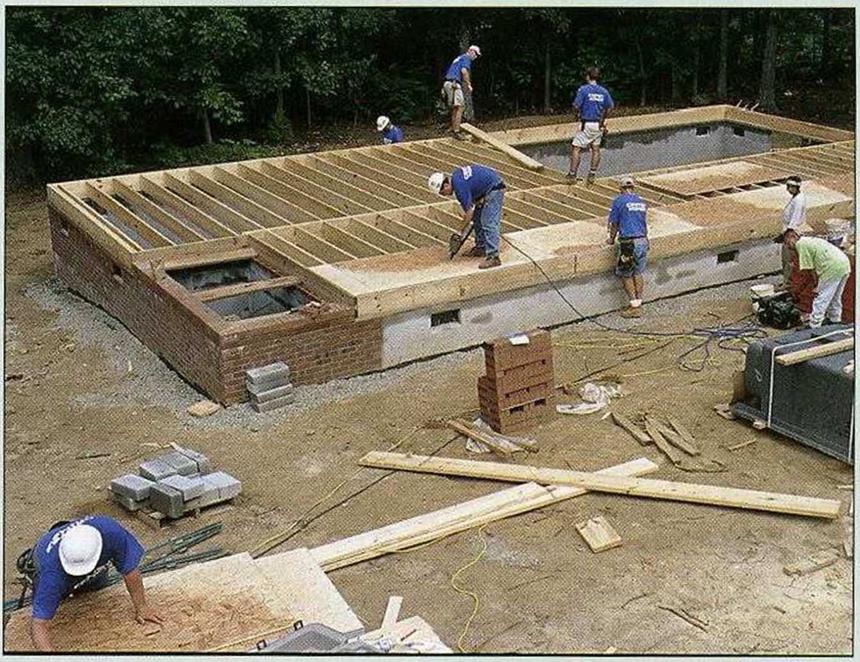Did You Know

ACCORDING TO A SURVEY in Builder
Magazine, Habitat for Humanity is the
15th largest house builder in the U. S.
a Since its founding in 1976, Habitat for Humanity has built or rehabilitated more than 40,000 houses throughout the U. S.
^ More than 350 Habitat houses have been built by all-women crews.
a According to The Chronicle of Philanthropy Habitat for Humanity is the 23rd largest nonprofit organization in the U. S.
a The average Habitat house built in the U. S. costs just over $48,000, encompasses 1,100 sq. ft. of living space, is held together with 20,000 nails, contains 650 pieces of lumber, and is finished with 40 gal. of paint.
a Habitat for Humanity has 1,621 affiliates in the U. S. (including Guam and Puerto Rico) and 497 international affiliates in 83 countries.


Smoke detectors and fire extinguishers save lives
Smoke detectors can and often do save lives, especially when a fire breaks out while you are sleeping. Most codes require that smoke detectors be installed in every bedroom and hallway. Some detectors are designed to be wired into your electrical system (with battery backup in case of power outages), while others work on battery power alone. You need to know the location of these units so you can check them every three to four months by pressing the test button that’s clearly visible
on each detector. If the unit is operating properly, it will emit a high-pitched sound.
A while back, a friend was visiting and left a small towel on top of the stove not realizing that one of the burners was on. In just a minute or two, the towel was ablaze. A handy fire extinguisher quickly put an end to what could have been a major disaster. Fire extinguishers are inexpensive and have been put in all the Habitat houses I have worked on. Install one in the kitchen where it is easily visible and accessible so that anyone can locate it quickly. Drive the mounting screws into a stud so the fire extinguisher is securely attached.
[1] Clip the first nail by bending a second nail over it. Hammer the clip until both nails are fully embedded in the wood.
[2] Prepare for Truss Arrival and Installation
[3] Cover the inside and outside corners. This is an optional step, but one that I routinely take to provide extra protection in these critical areas, especially if the siding will be installed directly over the studs. Fold a 2-ft.- wide wall-high length of wrap in half and staple it vertically over the outside corners and into the inside corners.
[4] Wrap the house from corner to corner.
If a 12-ft. roll is too tall for the house you’re working on, cut the roll roughly to length






Leave a reply